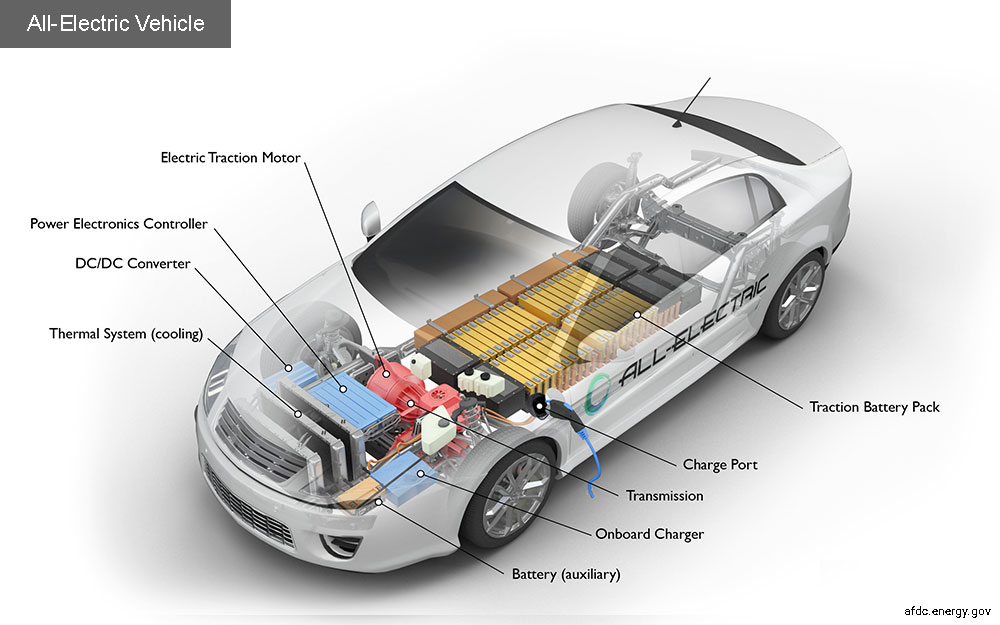Darsazma News Hub
Your go-to source for the latest news and insightful information.
Charge Me Up: Why Electric Cars are the Future of Driving
Discover why electric cars are revolutionizing the roads—boost your knowledge and drive into the future with Charge Me Up!
The Environmental Impact of Electric Cars: Driving Towards a Greener Future
The shift towards electric cars represents a significant step in reducing our carbon footprint and driving towards a greener future. Traditional internal combustion engine vehicles are major contributors to greenhouse gas emissions, which exacerbate climate change. In contrast, electric vehicles (EVs) produce zero tailpipe emissions. Moreover, when charged with renewable energy sources, their overall environmental impact becomes even more favorable. According to the EPA, this transition can potentially lead to a remarkable reduction in air pollution, benefiting both public health and the environment.
However, it's essential to recognize that the manufacturing and disposal phases of electric cars also carry environmental concerns. The extraction of lithium and cobalt for batteries can lead to significant ecological degradation if not managed responsibly. To address this, many manufacturers are investing in more sustainable practices and recycling initiatives. Industry experts suggest that as technology evolves, the lifecycle impact of electric vehicles will continue to diminish. For further insights on the advancements in battery technology, refer to NRDC.

Are Electric Cars Really Cheaper to Own? A Comprehensive Cost Analysis
When considering whether electric cars are really cheaper to own, it's essential to evaluate various cost factors. Initial purchase price, financing, and state incentives can significantly impact the upfront investment. According to a report by the U.S. Department of Energy, electric vehicles (EVs) often come with higher upfront costs compared to their gasoline counterparts. However, many states offer tax credits and rebates that can reduce these expenditures. Additionally, when calculating long-term ownership costs, it's vital to factor in fuel savings, maintenance costs, and depreciation. Electric cars benefit from lower energy costs, as the price per mile for electricity is typically less than gasoline, leading to an overall decrease in operating expenses.
Moreover, maintenance costs for electric vehicles tend to be lower due to fewer moving parts and reduced wear on components. According to a study from Edmunds, EV owners pay an average of 37% less on maintenance and repair than traditional car owners. It's also important to consider the total cost of ownership (TCO), which includes insurance, registration, and potential charging infrastructure installation. As electric charging networks grow, the accessibility and convenience of charging are also improving. Ultimately, the decision on whether electric cars are cheaper to own will depend on individual circumstances, driving habits, and local incentives, making it crucial to conduct a comprehensive cost analysis before making the switch.
How Electric Vehicles Are Revolutionizing the Auto Industry: Trends and Innovations
The rise of electric vehicles (EVs) is fundamentally transforming the auto industry. With advancements in battery technology and charging infrastructure, EVs are becoming more accessible to the average consumer. Major automotive manufacturers, such as Tesla and Volkswagen, are leading this charge by investing heavily in research and development. According to a report from IEEA, global sales of EVs are projected to reach 30 million by 2030, indicating a robust market shift towards sustainable transportation.
Key trends driving this revolution include enhanced range capabilities, affordability improvements, and growing government incentives for EV adoption.
Innovations in electric vehicle technology are also reshaping consumer expectations. Features such as autonomous driving and smart connectivity allow drivers to enjoy a seamless experience while on the road. Additionally, there is a growing focus on sustainability as manufacturers explore eco-friendly materials and production processes. As outlined by Edmunds, the next few years are expected to bring forth exciting innovations such as wireless charging and vehicle-to-grid technology, which promise to further integrate EVs into the broader energy ecosystem.